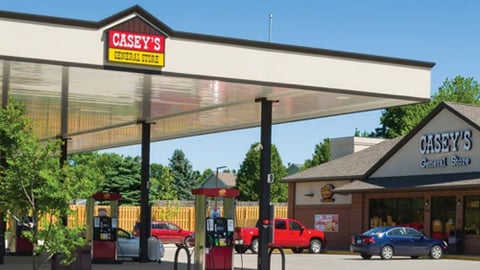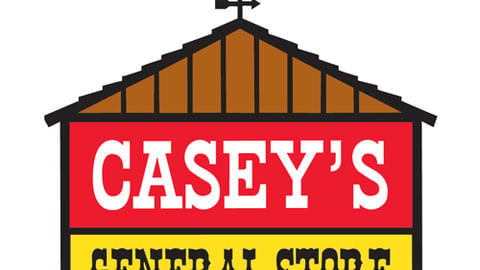Casey's Value Creation Plan Delivers Results in FY2019
ANKENY, Iowa — A little more than a year since launching its value creation plan, Casey's General Stores Inc. is seeing its efforts pay off.
"When we first introduced the value creation plan in March 2018, our goal was to create a plan designed to deliver significant long-term growth, demonstrated by increased earnings per share, EBITDA, return on invested capital and free cash flow. As we witness the continued evolution of the retail landscape and ever-changing consumer habits, we must continue to adapt and broaden the number of performance drivers beyond just same-store sales alone," Casey's President and CEO Terry Handley explained during the company's fourth-quarter fiscal year 2019 earnings call, held June 11.
According to Handley, a more balanced approach must include margin expansion and expense management through process improvement, a focus on increasing gross profit dollars to deliver a strong annual growth rate and earnings per share and EBITDA, while increasing after-tax return on invested capital.
"Based on the results of fiscal 2019 — which reflected a 44-percent increase in earnings per share and 19-percent increase in EBITDA and an after-tax return on invested capital of over 9 percent — we're well on our way to delivering on these expectations," the chief executive reported.
The multi-year, long-term value creation plan consists of several key programs and value drivers, including a new fleet card program, retail price optimization program, suite of digital platforms for customers, and continued focus on controlling operating expenses and capital allocation.
KEY MILESTONES IN Q4
In October, Casey's launched its new fleet card program. To date, the retailer has more than 1,300 new accounts, with approximately 7,200 new cards issued. Early results show the company is on target in adding new accounts and cardholders.
"Even though the utilization of these cards ramped up slower than we expected shortly after we launched, it is beginning to gain momentum as we focus additional resources around the program," Handley said.
Casey's continues to engage universal card providers as part of the overall approach to its fleet card strategy.
Total fleet gallons grew more than 9 percent in fiscal 2019 compared to a year ago, and "we remain optimistic about the potential of the overall fleet program going forward," noted Handley.
Another element in the value creation plan is price optimization, which allows the convenience store retailer to leverage the sales data generated by its c-store network combined with market data to make centralized, rules-based pricing decisions at the pump and in the store.
As a result of its price optimization efforts, Casey's anticipates it will improve gross profit dollars across all categories throughout its store network. During the fourth quarter, Casey's completed the implementation of price optimization at all of its stores.
"This fuel price optimization tool will provide us with greater agility in adjusting retail prices in response to the ever-changing fuel environment," the chief executive explained. "Centralized retail pricing changes will be available by the end of the fiscal year as we build out this new tool."
Price optimization also will give the retailer the ability to monitor merchandise sales at each store to identify any potential impact to inside sales that may be correlated to retail fuel price movements.
Casey's will begin to roll out the in-store price optimization platform starting this month — and continuing through September — after testing the platform during the fourth quarter.
"Price optimization represents a fundamental shift in our marketing processes for both fuel and in-store purchases, supported by increased visibility into our pricing and promotion strategy," Handley said. "We are excited about the benefits these programs will bring to the company."
Shifting to its digital initiatives, Casey's completed the integration of a new e-commerce website that provides an enhanced customer experience by streamlining the ordering and checkout processes, and allowing the customer to pay online. In addition, the system automatically engages cross-sell opportunities to the consumer during every order.
The retailer also completed the design and testing of its new mobile app, with rollout slated for the first quarter of fiscal year 2020. A new loyalty program will follow with a second-quarter rollout.
"The integration of the new suite of digital platforms for customers will create a seamless customer experience both online and in-store that enhances our digital capabilities and facilitates personalized marketing and rewards," Handley said. "This digital platform will allow us to gain a better understanding of our customers and better serve them by providing value and target-effective promotions that increase our average basket ring and drive additional customer visits."
NETWORK GROWTH
The final piece of Casey's value creation plan — its capital allocation strategy — will "continue to prioritize investments with attractive return profiles, including our value creation programs, as well as disciplined store growth through new store construction and strategic acquisition opportunities," according to Handley.
On the growth front, Casey's opened 56 new stores and acquired 24 stores in FY2019. In addition, it replaced eight stores and has eight acquisition stores under agreement to purchase.
"Currently, we have 81 stores in our pipeline, including 41 under construction, which puts us off to a great start for achieving our unit growth goals for the new fiscal year," Handley noted.
HANDLEY'S LAST CALL
The June 11 earnings call was Handley's last as he prepares to retire later in the month. Darren Rebelez, former president of IHOP and a convenience store industry veteran, will succeed Handley on June 24, as Convenience Store News previously reported.
"As I reflect on my nearly four decades with Casey’s, I'm incredibly proud of what our team has accomplished, and I’m confident that the business is well positioned for continued success," Handley said.
"This is the right time for me to retire, and I have absolute confidence in my successor, Darren Rebelez. I know Darren personally, and I am familiar with his tremendous leadership experience in the convenience store, fuel and restaurant industries, most recently as the president of IHOP," he continued. "I look forward to seeing where he takes this great company in the years ahead."
Ankeny-based Casey's General Stores closed out its 2019 fiscal year with 2,146 convenience stores.








